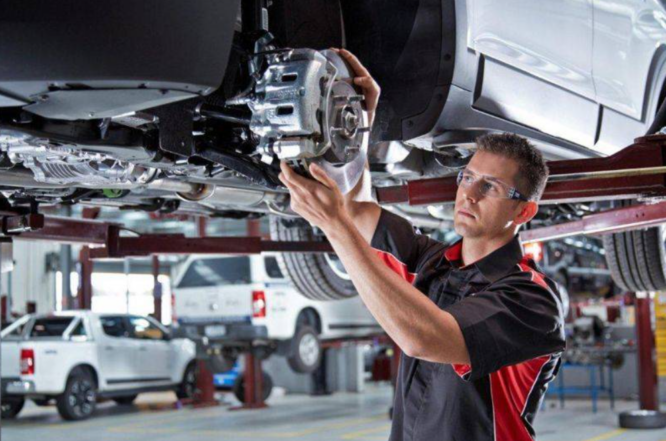If you’re waiting for your automobile to be fixed and don’t know why, it may be a labor shortage.
Two Australian automotive peak organizations representing retail motor trades and aftermarket service centers told CarExpert more qualified staff are required to reduce repair wait times.
“Current wait times for automotive repairs are down to a number of key factors including a backlog of COVID repairs being cleared, a lack of skilled labour, and blockages in skilled migration,” said Motor Trades Association of Australia (MTAA) interim CEO Geoff Gwilym.
“[The] Government are moving quickly on the skilled migration review but more will be needed to fix the labour problem for the longer term.”
Employers should cooperate with local school VET coordinators to develop a local labor supply chain through apprenticeship programs.

In the short run, skilled migration will provide labor.
Australian Automotive Aftermarket Association (AAAA) CEO Stuart Charity said increased wait times anticipated “for the foreseeable future” due to skilled labor shortages.
Skill shortages are major. Mr. Charity estimated a 30,000-technician shortfall in Australia across all repair specialties.
“That’s about one technician for every repair and service business.
A dearth of skills, growing demand, and supply chain challenges create a perfect storm.
Mr. Charity said the AAAA has a “three-pronged approach” but no “simple quick fix to it”.
“We are lobbying the government to make automotive trades a priority area for skilled migration,” he added.
We can only acquire short-term labor from abroad skilled people.

“There’s lots of competition for a few spots.”
Mr. Charity suggested recruiting more young people into trades.
He stated the 2023-24 Federal Budget offered 300,000 free TAFE posts across all industries.
We hope automotive would be prioritized to attract more young people.
The third thing we’re doing is changing the automobile trades’ outmoded image.
“I think it’s perceived as low-paid, low-skilled, dirty, and not great work. As we know, automobiles are today complicated machinery.
It has wonderful careers. Programming, improved diagnostics, electric cars, etc.
“There are a lot of career options in high technology and ultimately a chance to run your own business because a lot of repairers are just a small piece of family-owned businesses.
“I think we’ve got to do better as an industry collectively to really talk about the benefits of our [automotive] industry.”
“If we could get more skilled migrants immediately and then obviously more talented people through the system… we will ultimately get on top of this,” Mr. Charity said.

